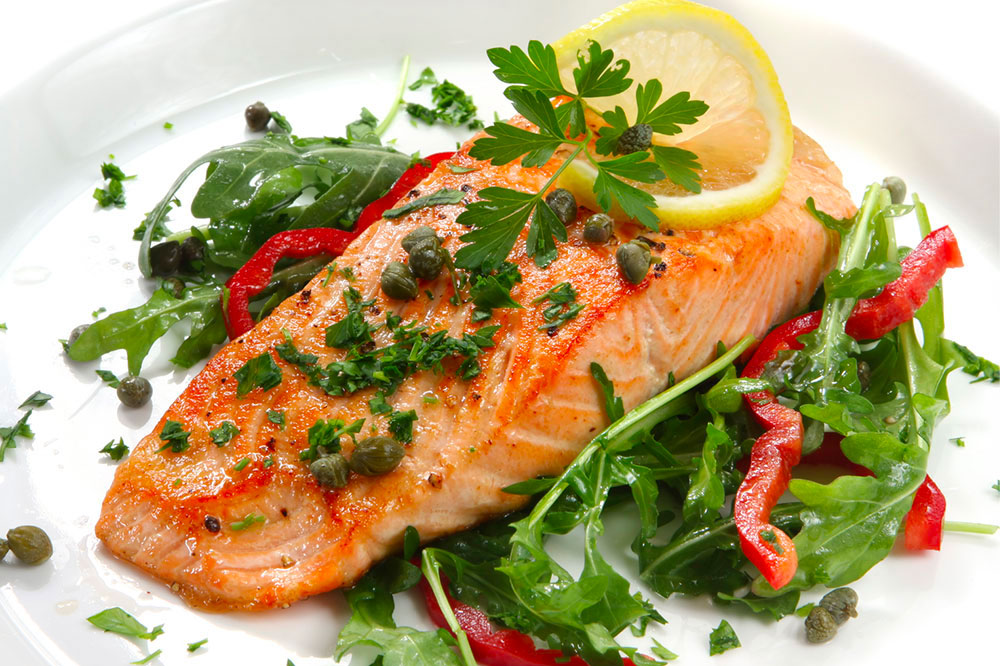Top 4 food items that guarantee healthy hair

Nutrition plays a crucial role in a person’s general health. The food one eats regularly helps keep the skin and hair healthy. Further, foods also impact the hair’s volume, growth, and strength. However, the speed of growth and hair strength may also depend on various factors such as genetics, age, overall health, and environmental exposure. Although one cannot change these factors, one can adjust the daily meal plan to ensure proper nutrition.
Foods for healthy hair
Vitamins and minerals in food play a pivotal role in the growth cycles of hair follicles. Hence, healthcare professionals suggest a meal plan encompassing all the vital nutrients for healthy hair. Some of such healthy food choices are listed below.
Salmon
Fishes like salmon, mackerel, and sardines are rich in Omega-3 fatty acids. As the body cannot produce these fats, one can add these fish to their meal plan to ensure nutrition. Further, the fatty acids also protect the body from diseases and ensure the growth and shine of the hair.
Eggs
A good source of protein and biotin, eggs are essential for hair growth. As hair follicles are made up of protein, one must ensure regular protein intake to ensure minimum hair loss. Furthermore, research has shown that the intake of increased amounts of biotin may help improve hair growth. Also, eggs are rich in zinc, selenium, and other nutrients the hair needs.
Chia seeds
A nutritional powerhouse, chia seeds are an excellent source of Omega-3 fatty acids. Moreover, they are filled with fiber and antioxidant properties that promote healthy and beautiful hair. Further, the seeds also contain copper and zinc, the key minerals for hair health. While zinc stimulates protein transformation, copper aids in the regeneration of new hair.
Spinach
Spinach is a leafy green packed with nutrients and contains iron, folate, vitamin A, and vitamin C. On one hand, iron helps red blood cells carry oxygen to the hair follicles, aiding in their growth and repair, while on the other, vitamin A ensures the growth of cells and moisturization of the scalp to keep the hair follicles healthy.
In addition to adding the above foods to the meal plan, one can also seek the advice of a nutritionist to ensure a well-balanced food plan with the right vitamins to avoid hair loss and maintain overall health.



